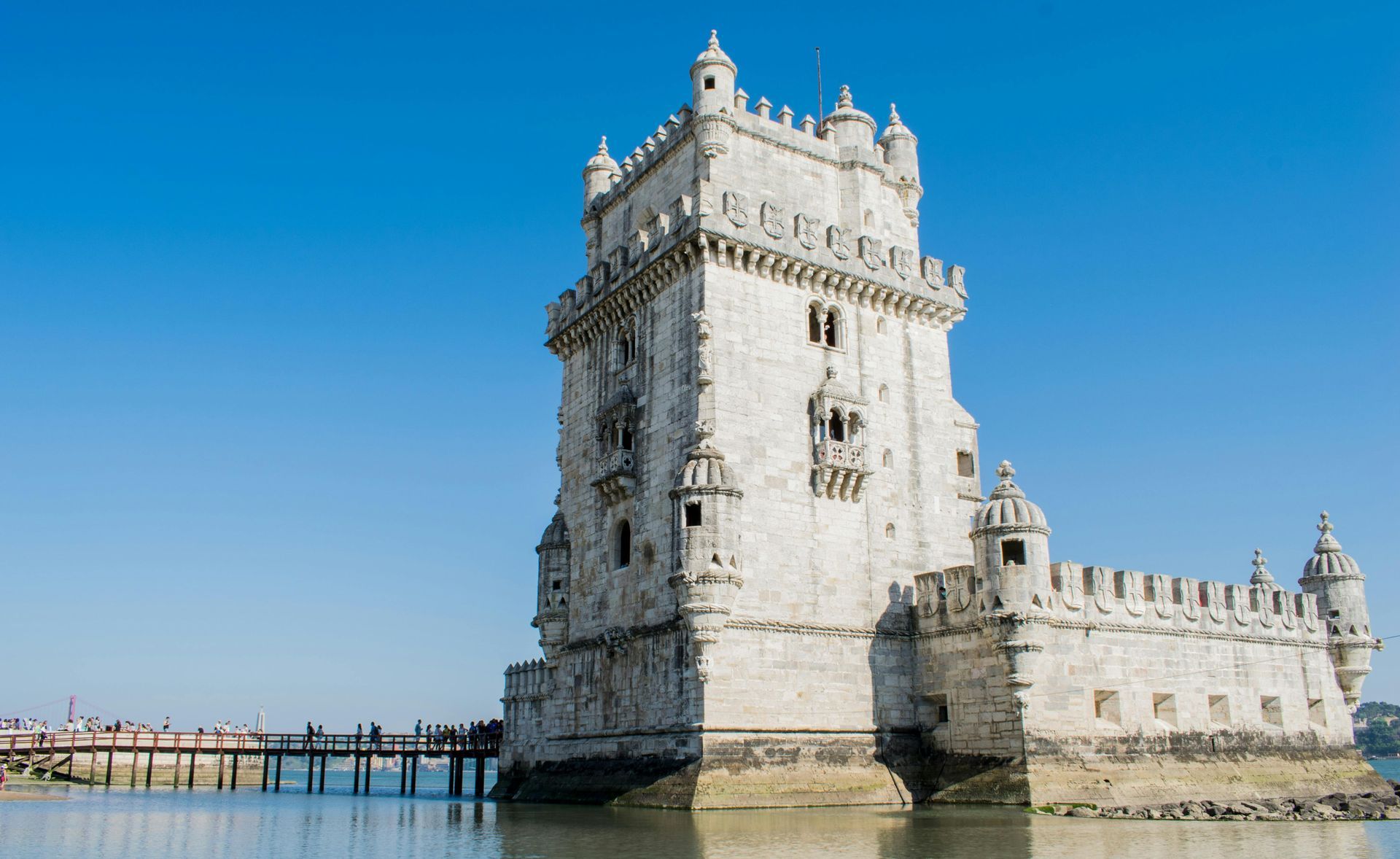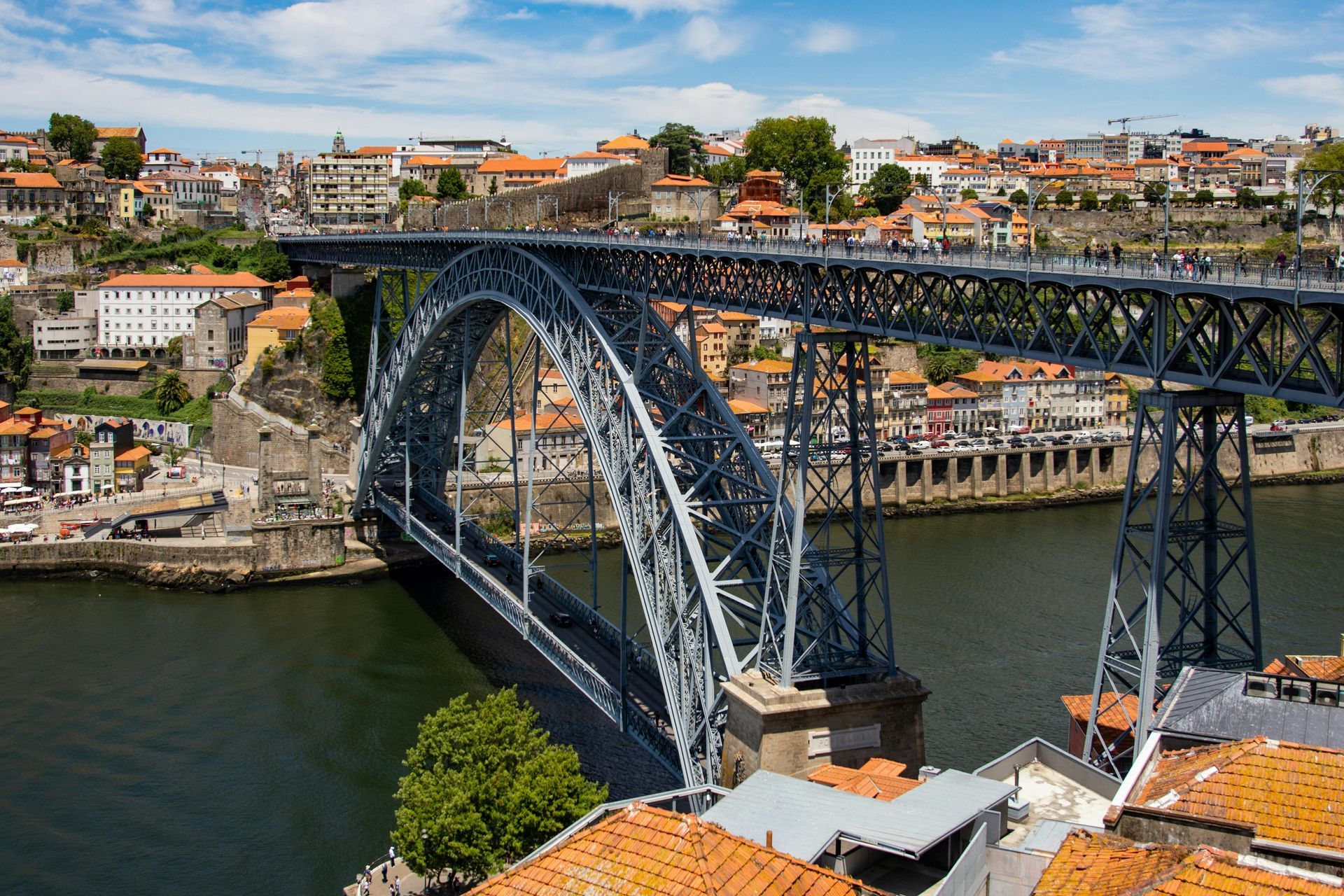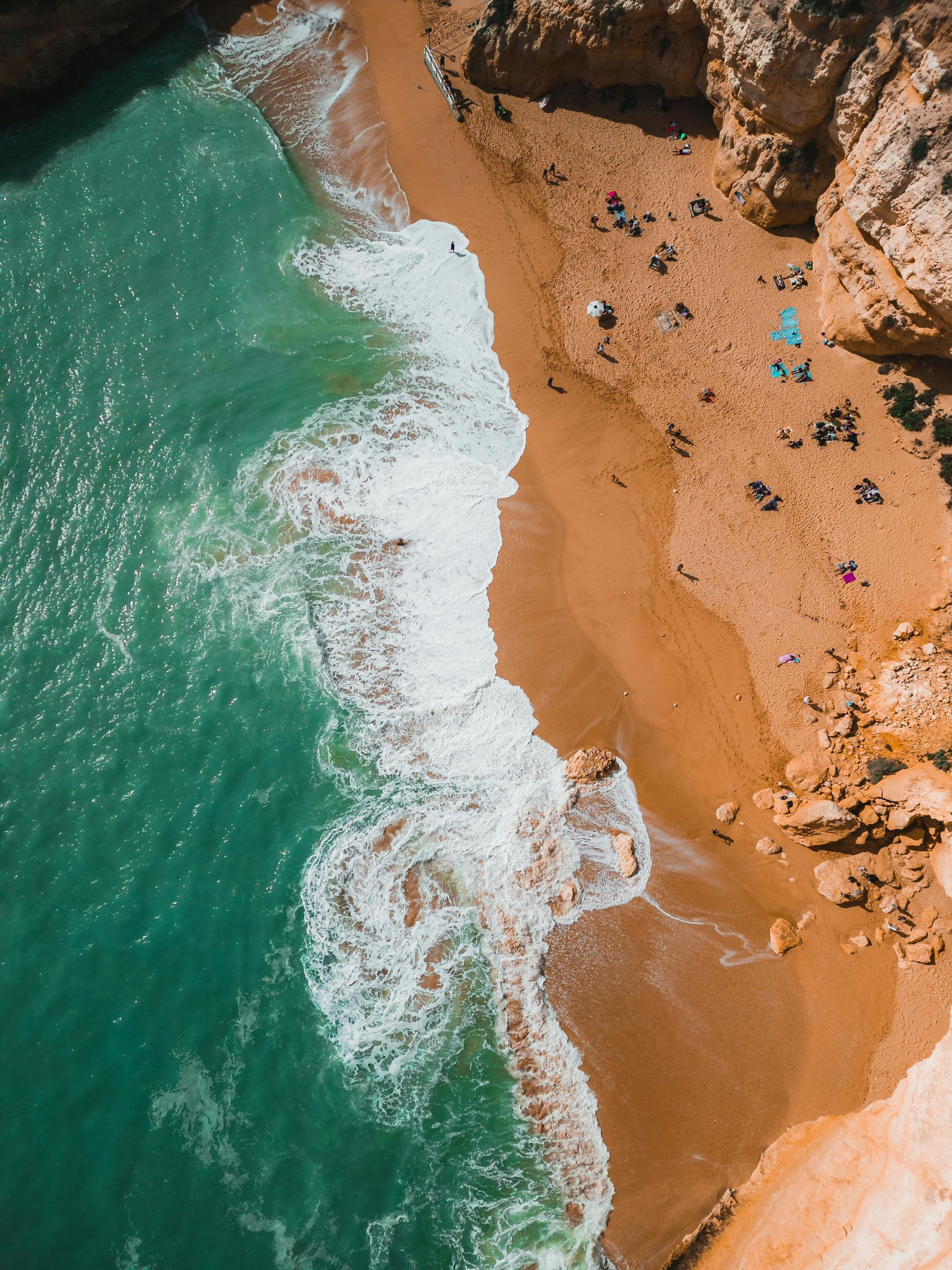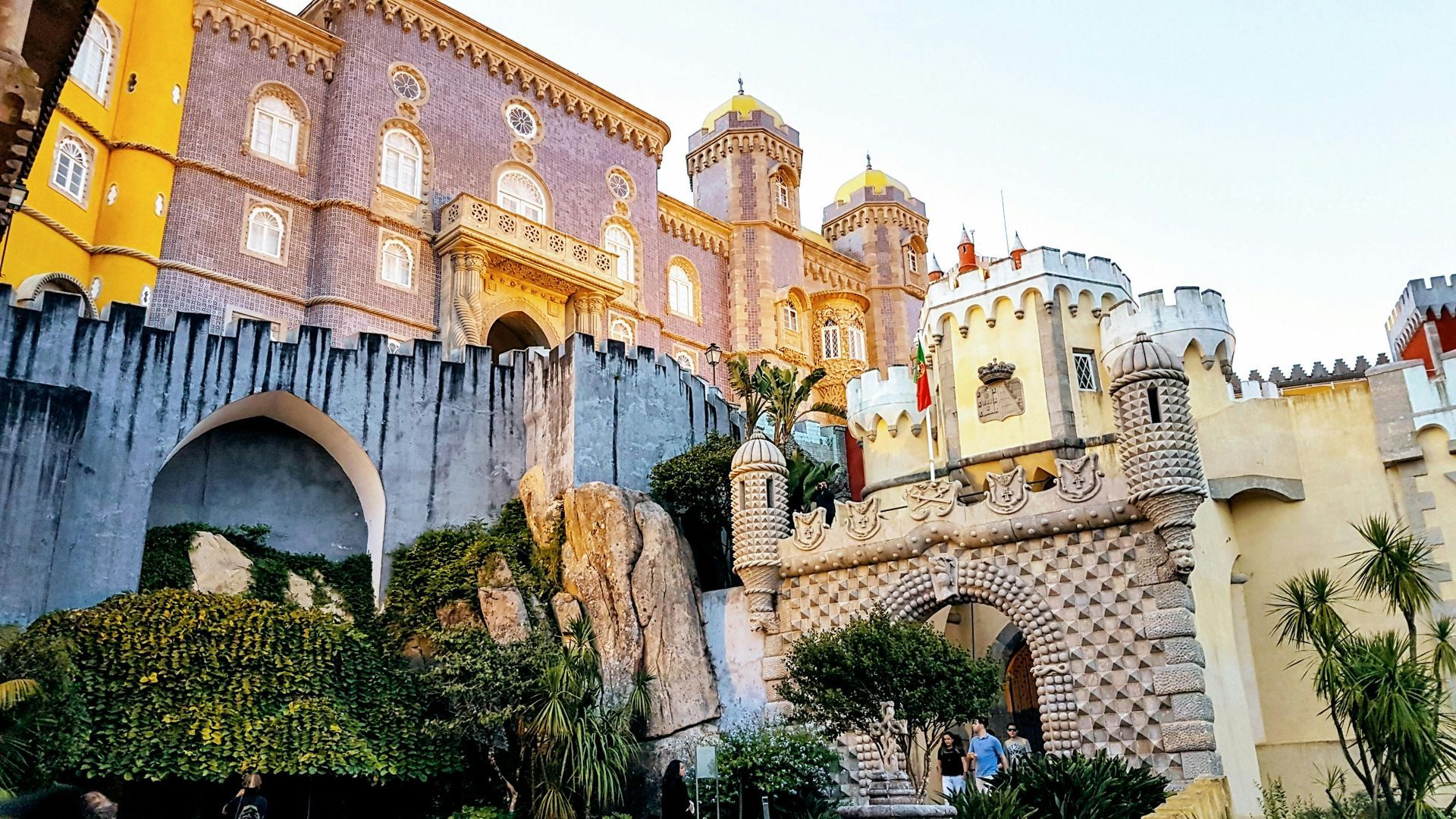Portugal
Introduction to Portugal
Portugal, nestled on the western edge of the Iberian Peninsula, is a country steeped in history, culture, and natural beauty. From the vibrant streets of Lisbon to the sun-kissed beaches of the Algarve, Portugal offers a diverse landscape of medieval castles, cobblestone villages, and rugged coastlines. With its mild climate, friendly locals, and rich culinary traditions, Portugal is an inviting destination for travelers seeking both relaxation and adventure.
Holidays to Portugal

Lisbon
Highlights: Belém Tower, São Jorge Castle, Alfama District.
The capital city is known for its colorful architecture, historic trams, and lively nightlife. Wander through its narrow streets, enjoy panoramic views from hilltop castles, and experience the soulful Fado music.

Porto
Highlights: Ribeira District, Dom Luís I Bridge, Port Wine Cellars.
Situated along the Douro River, Porto is famous for its stately bridges and production of port wine. The city’s historic center is a UNESCO World Heritage site, boasting charming alleys and vibrant markets.

Algarve
Highlights: Praia da Marinha, Lagos, Faro.
The southernmost region of Portugal, the Algarve is renowned for its stunning beaches, dramatic cliffs, and golf resorts. It’s a haven for sun-seekers and outdoor enthusiasts alike.

Sintra
Highlights: Pena Palace, Moorish Castle, Quinta da Regaleira.
A picturesque town nestled in the mountains near Lisbon, Sintra is known for its fairy-tale palaces and lush gardens. It’s a must-visit for those interested in history and architecture.
Practical Information
- Visa Requirements: Portugal is part of the Schengen Area. Visitors from many countries can enter visa-free for up to 90 days. Always check the latest visa regulations before traveling.
- Transportation: Efficient public transport includes trains, buses, and metros in major cities. The country is also well-connected by regional and high-speed trains.
- Currency: Euro (€). Credit and debit cards are widely accepted, but carrying some cash is advisable, especially in smaller towns.
- Language: Portuguese is the official language. English is commonly spoken in tourist areas. Learning basic Portuguese phrases is appreciated by locals.
- Emergency Numbers: Dial 112 for all emergency services (police, fire, ambulance).
Portugese Cuisine
- Pastéis de Nata: Delicious custard tarts with a crispy puff pastry, best enjoyed with a sprinkle of cinnamon.
- Bacalhau: Salted codfish prepared in numerous ways; it’s said there are over 365 recipes, one for each day of the year.
- Francesinha: A hearty sandwich from Porto layered with various meats, covered with melted cheese and a rich tomato and beer sauce.
- Caldo Verde: A traditional soup made with kale, potatoes, and chouriço sausage, often served at celebrations.
- Port Wine: A sweet fortified wine originating from the Douro Valley, enjoyed worldwide as a dessert wine.
Cultural Etiquette
- Greetings: Handshakes are common upon meeting. Among friends, women may exchange two kisses on the cheek starting with the right.
- Dining: Lunch is typically the main meal, eaten around 1–3 pm. Dinner is usually later, from 8 pm onwards.
- Dress Code: Casual dress is acceptable, but modest attire is recommended when visiting churches or formal establishments.
- Tipping: Not obligatory but appreciated. Leaving 5–10% of the bill in restaurants is customary if service is satisfactory.
- Public Behavior: Portuguese people value politeness and humility. Using “please” (por favor) and “thank you” (obrigado/obrigada) is important.
- Punctuality: Time is flexible in social settings, but being punctual for formal appointments is expected.
Deals and travel inspiration
Weekly in your inbox
Contact Us
We will get back to you as soon as possible.
Please try again later.
Top Destinations
ABOUT US
LATEST OFFERS
LEGAL


We Accept :